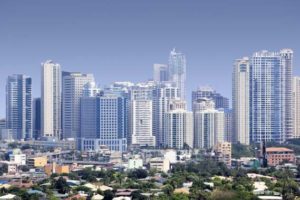New Zealand: Accredited Employer framework changes
The New Zealand government has announced significant changes to the Talent (Accredited Employer) work visa. These changes took effect on Oct. 7, 2019.
Impact 
Minimum salary increases
- The minimum salary will increase from NZD 55,000 to NZD 79,560 per annum. This will apply to all new applications received after Oct. 7, 2019.
- The new minimum salary is based on a forty-hour week. If additional hours are worked employers must pay at least NZD 38.25 per hour.
- If the proposed salary is under the new threshold alternate immigration pathways will need to be assessed.
Permanent Residence qualification
- Immigration New Zealand (INZ) is removing the ability to grant a Permanent Resident Visa in place of a Resident Visa to Talent (Accredited Employer) work visa holders who earn above NZD 90,000. Providing all conditions are met, applicants will still receive a Resident Visa with travel conditions and can apply for Permanent Resident later under the normal process.
Employer accreditation
- Approval for new applications will be provided for two years. This means that employers who apply for accreditation after Oct. 7, 2019 will be accredited for twenty four months, after which they must re-apply. For employers who already hold accreditation the existing terms will continue to apply. New terms will apply upon re-application only.
Looking ahead
It is advised that individuals who earn between NZD 55,000 and NZD 79,560 should apply for a Work to Residence Visa, providing a thirty month work visa leading to residence by Oct. 6, 2019.
Employers who want to apply for accreditation are advised to do so now.
This summary was prepared using information obtained from the New Zealand Immigration Authorities.
Disclaimer: The above information is provided for general information purposes only and should not be construed as legal advice. If you have any further inquiries regarding the applicability of this information, please contact Debbie Beynon, Regional Immigration Manager, APAC.
Philippines: Immigration process reform
The Department of Labor and Employment (DOLE) has introduced changes affecting the immigration application process.
Impact 
Since July 2019, and pursuant to Advisory No. 19-01, the DOLE Region IV-A (Calabarzon Office) require:
- Tax Identification Number (TIN)
- A revised application form
- Checklist for new/renewal Alien Employment Permit (AEP) applications
The same guidelines have been implemented with the DOLE-NCR (Manila Office). This is to ensure foreign nationals are contributing and paying the rightful taxes to the Philippines government.
According to Advisory No. 19-06, DOLE-NCR now requires submission of a Board Resolution, designating and authorizing employment contracts and other supporting documents for AEP applications. The authorized signatory should hold a managerial-level position in the company that is hiring the foreign national. Any amendment to the designated signatory must also be reported immediately to DOLE-NCR. This change took effect on Sept 2, 2019.
DOLE-NCR has clarified that an AEP application may be accepted without a Board Resolution if the signatory is the President, Corporate Secretary or Resident Agent and their name appears in the sponsor company’s General Information Sheet.
Pursuant to Advisory No. 19-08, DOLE-NCR also requires foreign national applicants to personally submit AEP applications and collect AEP cards from the office. The new rules only apply to applications submitted to DOLE-NCR in Metro Manila.
Looking ahead
On Oct. 15, 2019, only legitimate representatives of POGO (Philippine Offshore Gaming Operators) companies may file AEP applications on behalf of foreign nationals. Applicants are required to appear in person to claim AEP cards. Law firms and consultancies may continue to file AEP applications and retrieve AEP cards on applicants’ behalf.
Further updates will be provided on similar regulations being applied to other DOLE regional offices.
This summary was prepared using information obtained from the Department of Labor and Employment.
Disclaimer: The above information is provided for general information purposes only and should not be construed as legal advice. If you have any further inquiries regarding the applicability of this information, please contact Debbie Beynon, Regional Immigration Manager, APAC.
We track policy changes in over 120 countries. Find out how we can help you in this short video.




